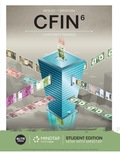61. Suppose a new company decides to raise its initial $200 million of capital as $100 million of common equity and $100 million of long-term debt. By an iron-clad provision in its charter, the company can never borrow any more money. Which of the following statements is most correct? a. If the debt were raised by issuing $50 million of debentures and $50 million of first mortgage bonds, we could be absolutely certain that the firm’s total interest expense would be lower than if the debt were raised by issuing $100 million of debentures. b. If the debt were raised by issuing $50 million of debentures and $50 million of first mortgage bonds, we could be absolutely certain that the firm’s total interest expense would be lower than if the debt were raised by issuing $100 million of first mortgage bonds. c. The higher the percentage of total debt represented by debentures, the greater the risk of, and hence the interest rate on, the debentures. d. The higher the percentage of total debt represented by mortgage bonds, the riskier both types of bonds will be, and, consequently, the higher the firm’s total dollar interest charges will be. e. In this situation, we cannot tell for sure how, or whether, the firm’s total interest expense on the $100 million of debt would be affected by the mix of debentures versus first mortgage bonds. Interest rates on the two types of bonds would vary as their percentages were changed, but the result might well be such that the firm’s total interest charges would not be affected materially by the mix between the two.
Cost of Capital
Shareholders and investors who invest into the capital of the firm desire to have a suitable return on their investment funding. The cost of capital reflects what shareholders expect. It is a discount rate for converting expected cash flow into present cash flow.
Capital Structure
Capital structure is the combination of debt and equity employed by an organization in order to take care of its operations. It is an important concept in corporate finance and is expressed in the form of a debt-equity ratio.
Weighted Average Cost of Capital
The Weighted Average Cost of Capital is a tool used for calculating the cost of capital for a firm wherein proportional weightage is assigned to each category of capital. It can also be defined as the average amount that a firm needs to pay its stakeholders and for its security to finance the assets. The most commonly used sources of capital include common stocks, bonds, long-term debts, etc. The increase in weighted average cost of capital is an indicator of a decrease in the valuation of a firm and an increase in its risk.
61. Suppose a new company decides to raise its initial $200 million of
capital as $100 million of common equity and $100 million of long-term
debt. By an iron-clad provision in its charter, the company can never
borrow any more money. Which of the following statements is most
correct?
a. If the debt were raised by issuing $50 million of debentures and $50
million of first mortgage bonds, we could be absolutely certain that
the firm’s total interest expense would be lower than if the debt
were raised by issuing $100 million of debentures.
b. If the debt were raised by issuing $50 million of debentures and $50
million of first mortgage bonds, we could be absolutely certain that
the firm’s total interest expense would be lower than if the debt
were raised by issuing $100 million of first mortgage bonds.
c. The higher the percentage of total debt represented by debentures,
the greater the risk of, and hence the interest rate on, the
debentures.
d. The higher the percentage of total debt represented by mortgage
bonds, the riskier both types of bonds will be, and, consequently,
the higher the firm’s total dollar interest charges will be.
e. In this situation, we cannot tell for sure how, or whether, the
firm’s total interest expense on the $100 million of debt would be
affected by the mix of debentures versus first mortgage bonds.
Interest rates on the two types of bonds would vary as their
percentages were changed, but the result might well be such that the
firm’s total interest charges would not be affected materially by the
mix between the two.
Trending now
This is a popular solution!
Step by step
Solved in 2 steps with 1 images







